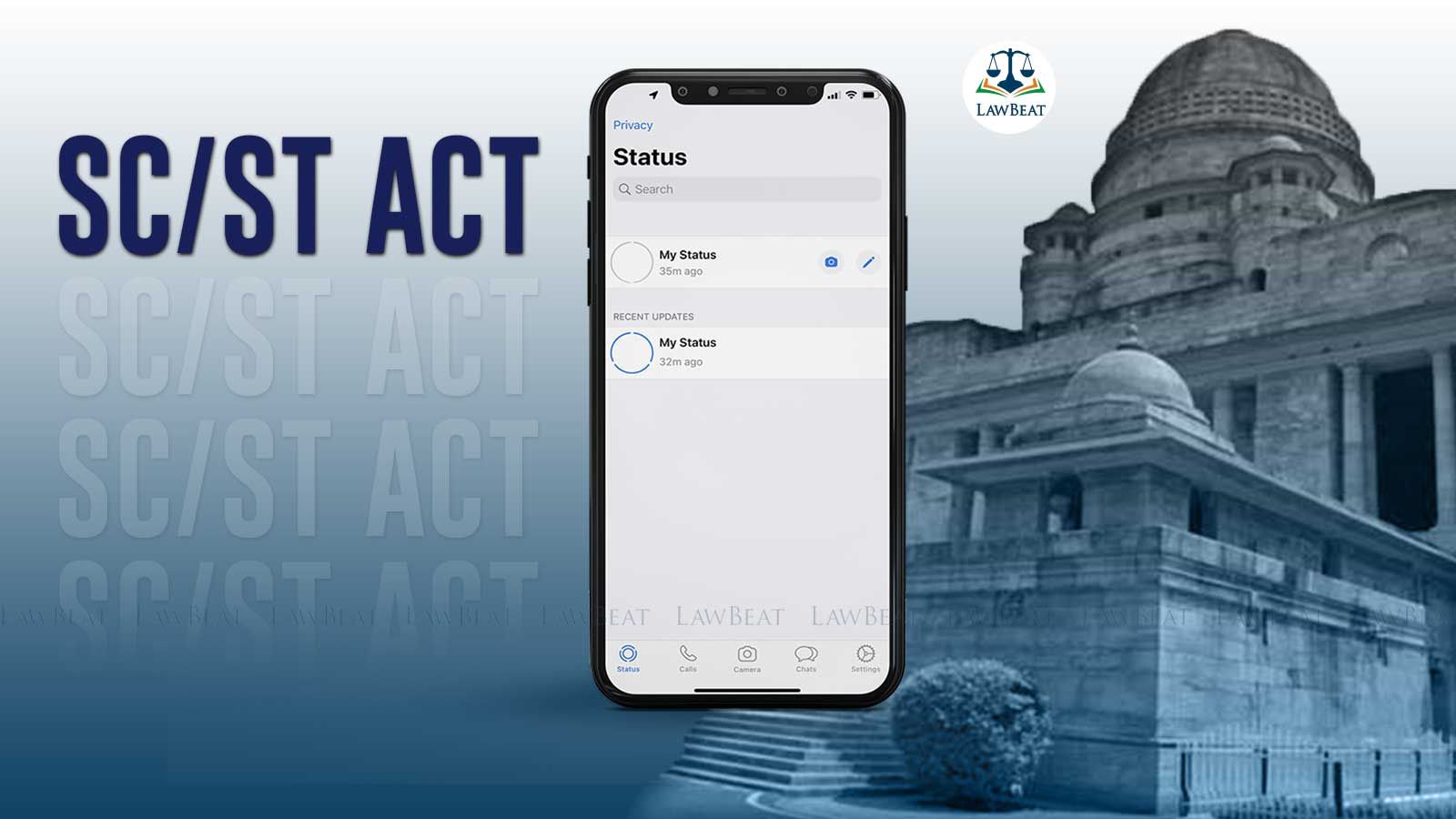'No Justification': Bombay HC Refuses To Quash FIR Against Man Booked Under SC/ST Act Over Objectionable WhatsApp Status

The high court observed that the investigation was in an embryo stage and it was not a fit case to quash the FIR. The bench noted that one should behave with a sense of responsibility while communicating something to others
A division bench of the Bombay High Court at Nagpur, presided by Justice Vinay Joshi and Justice Valmiki SA Menezes, recently refused to quash an FIR against an individual booked under the Scheduled Castes and Scheduled Tribes Act for posting an objectionable WhatsApp status, as the court found no justification for displaying such content.
“The applicant cannot shed his primacy responsibility by saying about its limited circulation. There is no justification for the applicant to display such kind of status. Contents of FIR prima facie, discloses applicant’s deliberate and malicious intention to insult the feeling of a group,” the court observed.
During the hearing of a case, the high court addressed an allegation wherein the informant accused the applicant of posing a question to be searched on Google. The applicant added a status that suggested one would obtain shocking results upon searching. Subsequently, the informant conducted a Google search, which led to the discovery of objectionable material amounting to outraging the religious feelings of a class.
On the complaint of the informant, the accused was booked under the Indian Penal Code, Scheduled Castes and Scheduled Tribes (Prevention of Atrocities) Act, and Information Technology Act.
Advocate SS Dangele, representing the petitioner, argued that the applicant had no intention of deliberately displaying the said status to outrage the feelings of any specific group. Additionally, it was pointed out that WhatsApp status can only be viewed by individuals who have the applicant's mobile number saved, indicating no intent to harm the feelings of a particular group. Moreover, it was submitted that neither the provisions of the SC and ST Act nor Section 67-A of the Information Technology Act would be applicable in this case.
Additional Public Prosecutor RN Rode, representing the state, argued that the applicant has a history of being a habitual offender with previous criminal records. Rode maintained that, upon examination of statements and evidence gathered by the Investigating Officer, a prima facie case was made out.
The division bench noted that one should behave with a sense of responsibility while communicating something to others.
“The very purpose of WhatApp status is to convey something to his contacts. It is nothing but a mode of communication with known persons. One puts up the status in order to get a reaction and most of them crave for support. Now a days, the people are checking WhatApp status now and then. One should behave with sense of responsibility while communicating something to other,” the court noted.
While refusing to quash the FIR the high court also recorded that the investigation was in embryos stage and it was not a fit case to quash the FIR.
“It is settled law that inherent powers under Section 482 of the Code though wide, have to be exercised sparingly, carefully and with great caution and only when such exercise is justified by the test specifically laid down in the section itself. There is no denial that the applicant has kept the mobile WhatApp status as alleged in the FIR. The investigation is in embryos stage and therefore, this is not a fit case to invoke our inherent powers,” the court recorded
Case title: Kishor Pandurang Landkar vs State of Maharashtra & Anr
